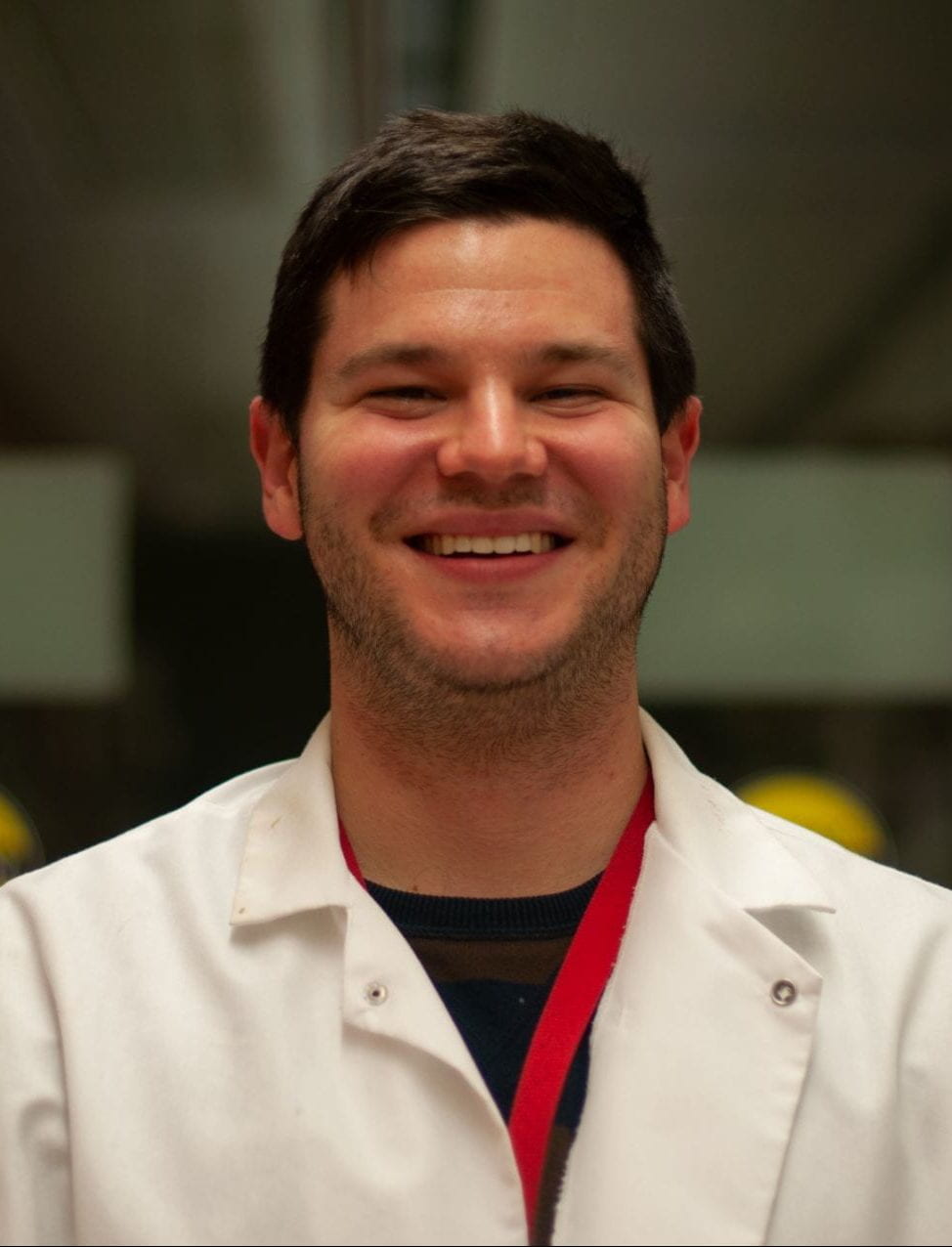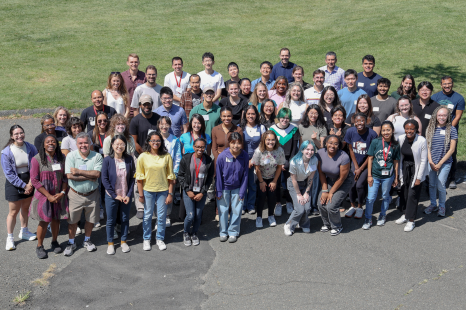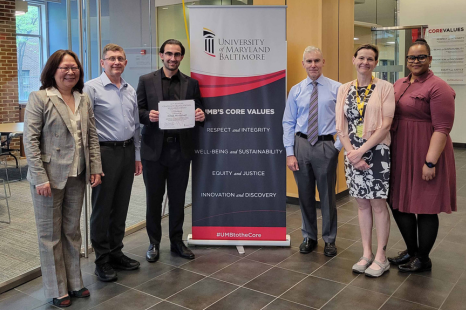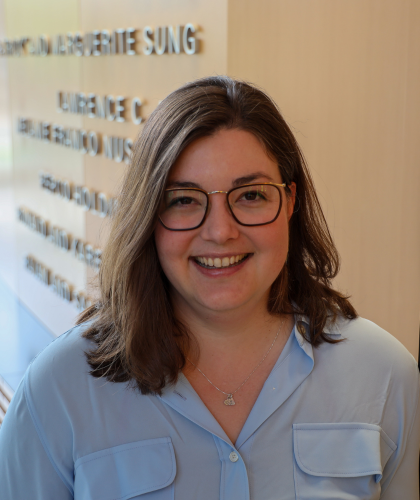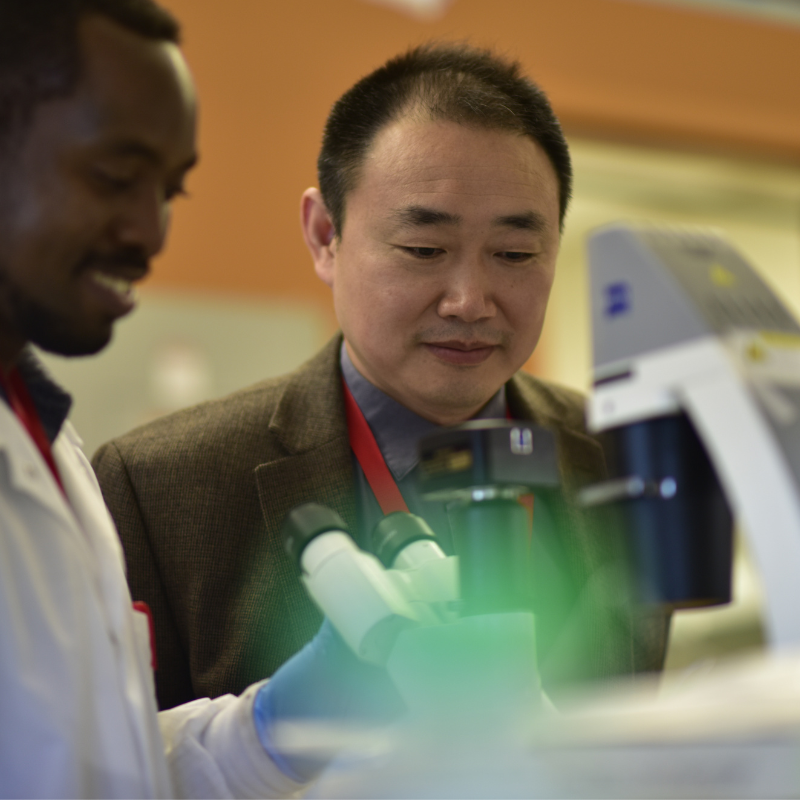News Story
BIOE Ph.D. Student Elected to BMES Board of Directors
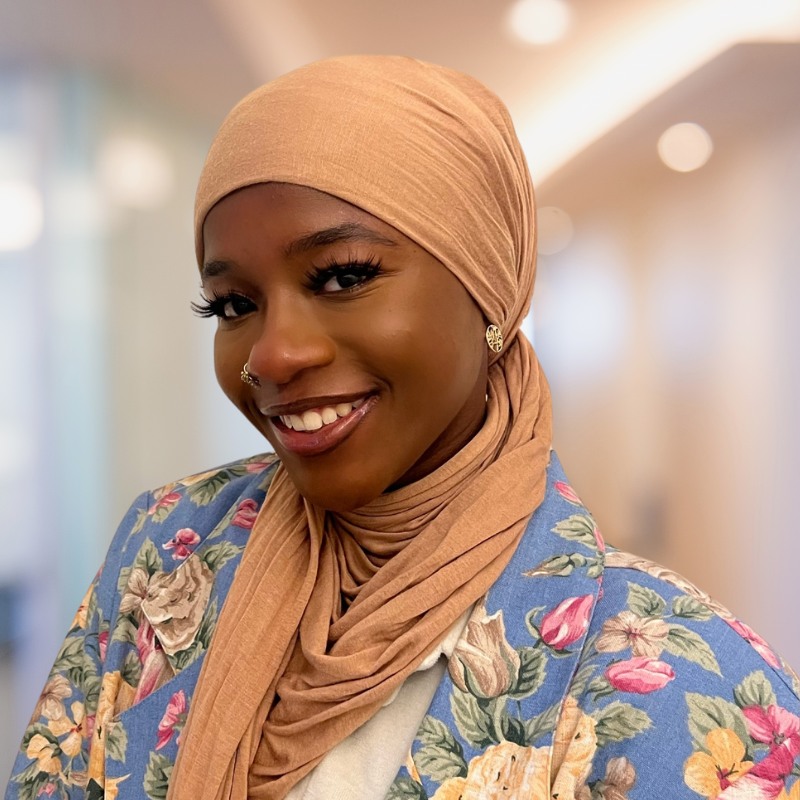
Bioengineering Ph.D. student Amal Shabazz was recently elected as a Student Representative to the Biomedical Engineering Society (BMES) Board of Directors.
Shabazz is a graduate researcher in the Tissue Engineering & Biomaterials Lab (TEBL), led by Fischell Department of Bioengineering (BIOE) Chair and Distinguished Professor John P. Fisher. In the lab, Shabazz works to 3D print tissue and implants for breast cancer patients. An active student, NSF GRFP fellow, researcher, and advocate, Shabazz is excited to join the BMES Board of Directors to amplify the voices of students and promote ideas that support underrepresented groups in biomedical engineering.
“Being elected to the Board means that I'm the voice that represents hundreds of students within the broad student body of BMES. I want to take every chance that I get to use that voice to contribute ideas that support the organization's mission,” Shabazz says.
Shabazz’s journey into biomedical engineering began from birth, inspired by her mother’s development of Rh-incompatibility, a potentially life-threatening condition that causes the immune system to attack the fetus’ red blood cells during pregnancy. She enrolled at the New Jersey Institute of Technology (NJIT) with the intention of understanding the function of the body and the role of the immune system in recognizing and responding to foreign substances. As she progressed into more specialized classes in tissue engineering during her junior and senior years, her interest and comfort with the material grew. Shabazz was particularly drawn to tissue engineering as it aligned with her goal of directly impacting the lives of underrepresented patients through innovative medical solutions.
During her undergraduate years, Shabazz joined a research lab focused on tissue engineering, where she worked on projects related to osteochondral and neural tissue engineering. This hands-on experience solidified her desire to pursue a Ph.D., where she could have greater autonomy and contribute meaningfully to research projects.
“Being elected to the Board means that I'm the voice that represents hundreds of students within the broad student body of BMES. I want to take every chance that I get to use that voice to contribute ideas that support the organization's mission.”
Amal Shabazz
Shabazz’s decision to pursue a Ph.D. was influenced by mentors like her undergrad research advisor, Dr. Treena Livingston Arinzeh, a trailblazer, accomplished researcher, and professor in biomedical engineering who inspired Shabazz. “I think a lot of what held me back—and what pulls other people back—is not having the experience of working with somebody that looks like them in the field, which makes them feel like their goals are unattainable,” Shabazz explains. “I think that having an opportunity to work with somebody like Dr. Arinzeh was very inspirational for me.”
Dr. Fisher—Shabazz’s current Ph.D. research advisor at UMD—recommended her for the BMES Board of Directors election. He highlighted her dedication, leadership, and passion for addressing health disparities through her research in tissue engineering and regenerative medicine. He emphasizes Shabazz's commitment to advancing underrepresented students in STEM fields and her proactive involvement in promoting accessibility within the bioengineering department.
“From the first time I spoke to her during the graduate school interview process, she expressed her curiosity by asking thought-provoking questions about my research and about how she could lead the UMD bioengineering community,” Fisher says. “I quickly recognized her unwavering inclination toward learning and her genuine interest in working toward the creation of life-changing medical solutions.”
In addition to her academic journey, Shabazz was actively involved in organizations like the National Society of Black Engineers (NSBE) as an Academic Excellence Chairperson and the Black Student Union (BSU) as the Vice President during her undergraduate years. These experiences provided her with a supportive community and leadership opportunities that strengthened her skills academically and personally.
Shabazz’s current research at UMD focuses on 3D printing nipple-areola complexes for breast cancer patients who have undergone mastectomy surgeries. Her project aims to develop a functionalized implant that can integrate with host tissue and maintain projection over time, offering an alternative to current surgical approaches.
Looking ahead, Shabazz envisions using tissue engineering and regenerative medicine to address healthcare disparities in minority communities. She aims to develop therapies that are accessible and effective across broad populations, emphasizing the importance of representation in biomedical research.
Published May 2, 2024


